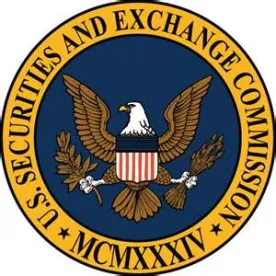On November 16, Securities and Exchange Commissioner Michael Piwowar addressed the 34th Annual Current Financial Reporting Issues Conference in New York to share his views on the current and future state of financial reporting. Commissioner Piwowar focused his remarks on three areas: (1) the future role of international financial reporting standards (IFRS) for financial statements filed with the Securities and Exchange Commission; (2) improving the quality of interactive data filed in reports with the SEC; and (3) the SEC’s efforts to improve corporate disclosures and his personal concerns that special interests have “corrupted the disclosure process to the detriment of investors.”
Future Role of IFRS
In addressing the role of IFRS, Commissioner Piwowar noted concerns expressed to him about the United States’ commitment to adopting a single set of high quality global accounting standards and steps taken by the Financial Accounting Standards Board (FASB) and the International Accounting Standards Board (IASB) in furtherance of such standards. Commissioner Piwowar noted that, while there is little to no support for the SEC to either mandate IFRS reporting for all issuers or provide for optional IFRS reporting for domestic issuers, “there is continued support for a single set of high-quality, globally accepted accounting standards.”
Commissioner Piwowar emphasized that any requirement for “IFRS financial reporting should be investor-driven, not regulator-driven.” In this regard, Commissioner Piwowar suggested that allowing for, but not requiring, supplemental IFRS financial reporting, without reconciliation to US generally accepted accounting principles, is worth serious consideration.
Improvement of the Quality of Interactive Data
Commissioner Piwowar next addressed the need for the SEC to review and assess whether SEC interactive data requirements are achieving the intended objectives and at what cost. Commissioner Piwowar specifically mentioned concerns about the “quality and accuracy of the information contained in interactive data filings with the SEC.” Commissioner Piwowar discussed moving such data “in-line,” as opposed to in separate exhibits, which he suggested may “improve the accuracy of structured data, ease the burdens of issuers, and facilitate easier review.”
Improvement of Corporation Disclosure
Lastly, Commissioner Piwowar offered this thoughts on improvements to the SEC’s corporate disclosure requirements, noting that “the SEC’s corporate disclosure regime does not provide easily digestible information about a company.” In highlighting the disclosure effectiveness project undertaken by the Division of Corporate Finance, citing Keith Holmes, the director of that Division, Commissioner Piwowar emphasized “better disclosure” is the objective and reducing the volume of disclosure is not (although these efforts by the Division might ultimately reduce company costs and burdens). In particular, he emphasized that the primary factor in his assessment on disclosure initiatives would be materiality.
Commissioner Piwowar further asserted that special interest groups have “hijacked” the SEC’s disclosure regime, expressing his view that certain rulemaking mandated by the Dodd–Frank Wall Street Reform and Consumer Protection Act (e.g., as to pay ratio disclosure and conflicts minerals) has “nothing to do with helping investors.” In closing, he suggested that the SEC’s focus should be on making sure that material information is efficiently and quickly delivered to the financial markets.
See the complete text of Commissioner Piwowar’s speech here.





 />i
/>i

